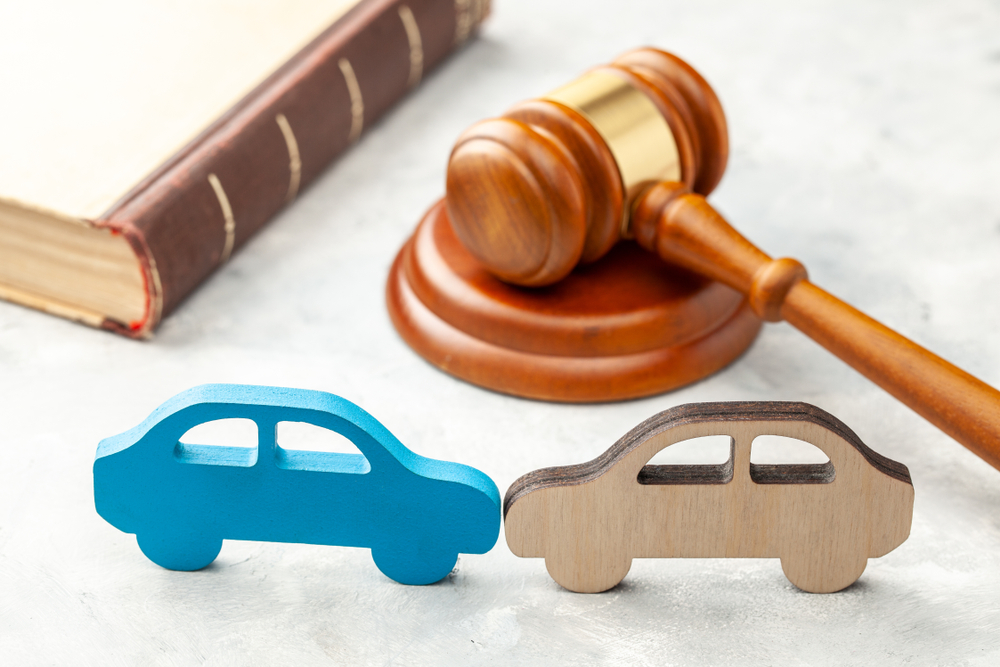If you are considering filing a personal injury lawsuit regarding a car accident, slip and fall, or any other type of injury, you may be wondering, “What’s the point in my case?” The answer lies in “damages” stating what your injuries have done to you financially, physically and mentally and, in some cases, whether the defendant’s conduct should be punished.
In the case of a personal injury, a person or company pays compensation to an injured person (plaintiff) who is legally responsible for the accident, the defendant, or his insurance company. For example, the award of damages can be agreed upon after negotiations between the parties, insurance companies, and their lawyers. In this rare case, when a personal injury case heard by the jury, an award of damage may be ordered by the jury. Let’s take a look at the different types of damages in personal injury cases and how the plaintiff’s action (or non-action) can affect each award.
Compensatory Damages in Personal Injury Cases
Most personal injury damages are classified as “compensatory”, meaning that their purpose is to compensate the injured plaintiff for what was lost as a result of the accident or injury. The purpose of the Compensation Award is to “complete” the injured plaintiff from a monetary point of view as far as possible. That means trying to put dollar data on all the consequences of an accident. Some compensation losses are relatively simple, such as property damage and the payment of medical bills. But it is more difficult to have evaluated the financial value of damages if you haven’t caused any “pain and suffering” For evaluation, there are various types of compensation losses in many personal injury cases, which are given below.
Medical treatment:
A personal injury award always includes the cost of medical care related to the accident.
Income You may be entitled to compensation for the impact of the accident on your salary and wages not only from the income you already have but also from the money you will earn in the future.
Property damage
If any vehicle, clothing, or other equipment is damaged as a result of the accident, you will be entitled to repair or compensate for the fair market value of the lost property.
Pain and discomfort
During and after your accident, Subsequent trauma may be eligible for compensation, any ongoing pain that may be the cause of the accident.
Emotional distress
Usually associated with more serious accidents, emotional trauma damages are intended to compensate for the personal injury plaintiff for the psychological effects of an injury. These include fear, anxiety, and lack of sleep. Some states consider emotional distress to be part of any “distress” damages inflicted on a personal injury plaintiff.
Loss of consortium
In personal injury cases, the losses from “consortium damage” usually depend on the impact on the plaintiff’s relationship with his or her partner. Some states also consider different effects on the relationship between parents and their children when someone is injured. In some cases, the consortium’s damages are paid directly to the victim’s family member rather than to the injured plaintiff.
Punitive Damages in Personal Injury Cases
Virtual losses
In cases where the defendant’s conduct is considered particularly offensive and extremely reckless, a personal injury plaintiff may be awarded the highest convicted damages of any indemnified award. Compensation damages come from a rational argument that is very different from the justification attached to compensatory damages, which “seeks to accomplish something.”
The injured plaintiff is given virtual damages, but the real purpose of such damages is to punish the defendant for his conduct. While this is not uncommon for honorary awards reaching tens of millions of dollars, most states have piled on some form of death penalty award for personal injury.
How the plaintiff’s actions or impracticalities may affect the damages award
In some cases, the role of an injured person in causing an accident, after the injury may reduce the amount of damages available in the case of personal injury.
Comparative negligence
If your mistake even partially caused injury due to your accident, it is likely that any damage award will reflect that. This is because most states adhere to the standard of “comparative negligence” which combines damages from the degree of error in the case of personal injury.
Negligence in partnership
In a handful of states that practice the concept of “participatory negligence” for personal injury cases, you will not receive any compensation at all if you are partially responsible for the accident. ۔
After the accident and Failure to reduce the damage:
In most states, the law requires that in personal injury cases, plaintiffs take reasonable steps to reduce or “mitigate” the financial impact of the damage caused by the accident. If an injured plaintiff just sits up and stands up for his or her speech in the court which is not appropriate to do so, failing to get the necessary medical treatment after an accident and exacerbating injuries.

